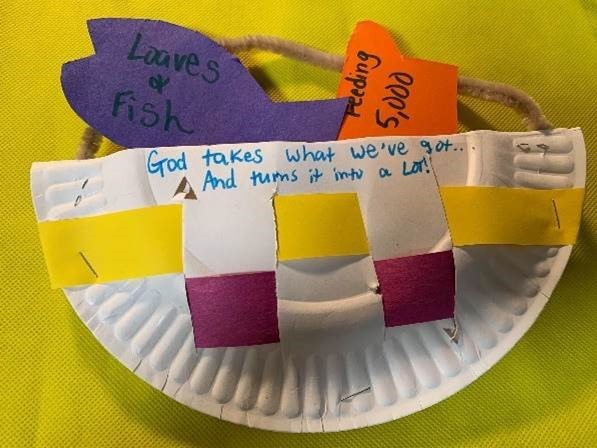THEME: What are we hungry for?
Feasting and covenants.
These two ideas are always linked in Scripture, and they signify God’s commitment to us and God’s invitation for us to be included in God’s family.
While this is certainly Good News for us, it is also a huge challenge when we face the truth that we are to become agents of God’s covenant and carriers of God’s invitation.
This means both proclaiming and living out the inclusivity of the Kingdom and facing issues of hunger and poverty in our world and our communities.
God’s covenant with God’s people, and the invitation to feast with God. Of course, these are simply two ways of expressing God’s commitment to us, and of showing the care, compassion, faithfulness, grace and salvation of God that the psalmists celebrate and rely on.
In Genesis, Jacob is visited by God and, in the struggle, is both wounded and blessed – which is always the case when we are touched by God in our broken world.
In Romans, Paul celebrates the Israelite people – the descendants of Jacob – to whom were given the invitation and the covenant and expresses his longing for them to respond to God’s new invitation and new covenant in Christ.
Finally, in the Gospel, the crowds who come to Jesus discover that they are welcomed, taught and fed, discovering, truly, a new Moses in Christ – one who gives them both a new law and a new manna.
Feasting – Funeral banquet this occurs right after they received news of John the Baptist’s death
• They want to leave and isolate themselves in grief
• Contrasts Herod’s banquet
• Herod: out of seeming abundance there was death and scarcity
• Jesus: out of seeming scarcity there is abundance
Trusting that God will meet all our needs – trusting that God will use everything we have been gifted with
Feeding of the 5000: Church events and lots of food left over.
We think that we don’t have much to offer — that our gifts, our talents are minimal. Jesus calls us to share our gifts and our talents. We never know what kind of influence and joy they will have with others.
Your smile, a very simple thing to do, might cause others to smile and feel better.
You may be called to be a reader of stories for children or for those whose eyesight is failing; you may be the one who organizes rides to doctor appointments.
Whatever the case, you have so much that you can share — so don’t keep those talents and gifts hidden. Share! You will love doing it.
Disciples: we have nothing but ………………….
That word, but!!
We trust and rely upon you God, but!!!
Rather than focussing on what we don’t have we focus on what we do have and gather and share and then we see abundance.
• God chooses to work with and through us
• “You give them something to eat”
• Jesus did not feed 5000- the disciples did
• Uses the resources we have- ABUNDANCE
• not what we don’t have – SCARCITY
• Only 5 loaves and 2 fish – SCARCITY
• Leftovers – ABUNDANCE
• Send them away – SCARCITY
Remaining as a community follow Jesus – ABUNDANCE
They were hungry. Hungry for what?
So, what should our worship contain as we consider what we are hungry for? Confession?
Well, certainly, confession is always appropriate for worship. But what are we confessing? Our hungers? That is part of being human; we are made to be hungry.
The confession might centre around how we respond to these hungers and which hungers we choose to try and meet. Remember, Jesus said, “Blessed are those who hunger and thirst for righteousness” (Matt 5:6).
So, maybe our confession ought to include the fact that we aren’t hungry enough.
Or that we let our hungers for righteousness and justice be satisfied with something less than justice for all.
Perhaps the church is now in the wilderness- we are getting hungrier and hungrier as are those around us- how will we “feed them” and ourselves with God’s abundance?
Or that we concentrate on physical hunger because that is always easier to meet than the deeper needs that people have, which might require more from us than we really want to give.
Worship is where we can announce that we are hungry for God. We come and call upon the Lord to meet us in worship, to fill us, and send us out into the world full of that presence and that hope.
The readings today can be a reminder that we are seeking the face of God when we gather but also when we scatter.
Our hunger for God is not only met when we gather for worship but also when we are at work, when we are in fellowship, when we engage in conversations and build relationships, when we serve and love as we are sent to do.
Let the blessing and benediction (the dismissal: go in peace to love and serve the Lord) not be an end of our searching, but an invitation to carry the search for God’s presence beyond the walls of the church.
May we feast on God’s grace as we worship, and go out to create both physical and spiritual feasts at every chance we get.

